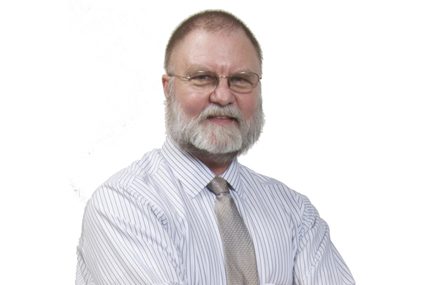May 2012 HeadlinerTim Hayes
President, Bayer HealthCare Consumer Care North America
1992-present
Bayer HealthCare, senior sales and leadership positions
1980-1992
Quaker Oats Company, sales and marketing positions
You’re a talented, ambitious executive, blazing a trail through the ranks of your organization. You love what you do and you never want to give it up. You also happen to be female and you want to have children. Now what?
Having the boss take care of your kids probably wouldn’t make it onto your shortlist of childcare options. But, then again, Tim Hayes is no ordinary head honcho.
The North American president of Bayer HealthCare’s Consumer Care division dropped $1.5 million on building a daycare center next to the company’s Morristown, NJ offices. And because the facility is already full, he’s about to spend as much again on making it bigger.
“I look out of my window and I can actually see the kids in the playground,” says Hayes, without having to spell out the obvious gratification this brings.
It is this type of sentiment that spurred the founding, in 2008, of Bayer’s Women’s Leadership Initiative (WLI), which was initially set up as a grassroots effort to recognize, attract and retain top female talent by offering resources and tools to help cultivate and advance the careers of female managers.
“These ladies would get to a stage in their career when either their husbands’ jobs took precedence and they relocated, or they would have children without access to daycare,” says Hayes. “We needed programs that were more flexible that took into account the busy lifestyle of a working mom.”
With the backing of senior management across the Bayer HealthCare group, the initiative soon spread to other US divisions, and is about to hit Europe and beyond. It has evolved to include educational tools, personal career plans, networking and mentoring which Hayes sees as particularly vital to the success of any organization.
“We try not to create this hierarchy here where the senior management is only seen in the hallway,” he says. “People will speak out when they feel they are being listened to. You can’t be disconnected from the organization because it doesn’t work and it doesn’t feel good.”
Bayer’s continued efforts in making the program a success have not been lost on the Healthcare Businesswomen’s Association, which honored the company with its 2011 ACE Award. Hayes, who proudly notes that more than 70% of his marketing department (the largest in Bayer Consumer Care) is female, was flattered by the recognition, but is keen to point out that it doesn’t stop there. “We always feel we can do better and we have a lot of work ahead of us.”
The WLI is an extension of a corporate culture that places a high value on its people, and Hayes devotes countless hours to the manifestation of that spirit.
He has a regular job, too, of course, overseeing Bayer’s OTC business. He sees OTC as “a good place to be” because populations are living longer, noting also that the transformation of the passive patient into the proactive consumer holds “great opportunities.”
Hayes expects Bayer to focus more on emerging markets in the next 3-5 years and cites Brazil, China, Russia and Eastern Europe as regions with high OTC potential.
Hayes joined Bayer from consumer packaged goods, where he began, fresh out of college, as a rep hawking cereals for Quaker Oats. Hayes says he was fortunate to have worked for some good leaders himself.
“I watched closely how they communicated and interacted with people, and how they motivated,” he says. “I would soak up all the things that made me feel good and tried as best as I could to do those things myself.”
Outside of the office, Hayes likes to hit the gym 5-6 times a week, and spends a lot of time with his family, often supporting his three sons, ages 17 to 27, in their various endeavors, from basketball to professional acting. Unsurprisingly, he is a strong believer in maintaining work-life balance.
“You can’t burn people out. When they get in their car in the winter, and it’s 18 degrees, and they’re trying to turn the engine over, they’ve got to want to come to work and they’ve got to love what they do.”
From the May 01, 2012 Issue of MM+M - Medical Marketing and Media








